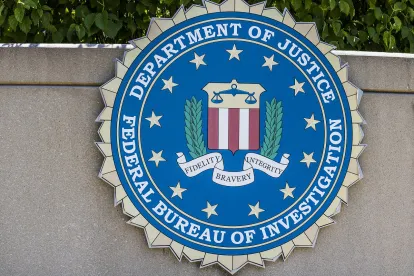As the US Department of Justice (DOJ) begins to revive the use of Supplemental Environmental Projects (SEPs), it is likely that they will appear again with increasing frequency in settlement agreements moving forward. DOJ received comments through July 11, 2022 on its interim final rule to revoke the Trump-era regulation that prohibited payments to non-governmental, third-party organizations who are not parties to an enforcement action—the regulation that effectively prohibited SEPs in settlement agreements. This post will provide an overview of SEPs, regulations surrounding SEPs, comments received pertaining to the revival of SEPs, and the likely use of SEPs moving forward.
SEPs are intended to be environmentally beneficial projects that a party agrees to undertake in settlement of an enforcement action, which a party would not otherwise be legally required to perform. The performance of a SEP may result in a penalty mitigation, allowing a defendant to pay money to perform a SEP while receiving a reduction in the penalty paid for an alleged environmental violation.
Prior to the Trump Administration, DOJ and US EPA often incorporated SEPs into settlement agreements arising from violations of federal environmental laws. However, a series of administrative memoranda spanning from 2017 through 2020 ultimately concluded SEPs are unlawful because they divert cash from the Treasury to third parties absent Congressional authority to do so. The Trump Administration then issued a rule in December 2020, codified at 28 C.F.R. § 50.28, that prohibited settlement payments to non-governmental third parties (which would include payments to carry out SEPs), noting that “[t]he goals of a settlement agreement between the Department of Justice and a private party are to compensate victims, redress harm, or punish and deter unlawful conduct.” According to the rule, “[i]t is generally not appropriate to use a settlement agreement to require, as a condition of settlement, payment to non-governmental, third-party organizations who are not victims or parties to the lawsuit.”
In 2021, the Biden Administration acted quickly to show support for SEPs, issuing memoranda withdrawing the Trump Administration’s previous stance on SEPs and encouraging the active consideration of SEPs in settlement provisions to address past alleged harm to communities caused by noncompliance with federal laws. However, despite the Biden Administration’s early plans to revoke 28 C.F.R. § 50.28 and revive SEPs, the rule remained in place until May 2022. In May, the Biden Administration issued its Interim Final Rule Revoking 28 C.F.R. § 50.28 (Interim Final Rule), which revokes the codified prohibition, concluding the rule was “more restrictive and less tailored than necessary.” Because the Interim Final Rule was a rule of agency organization, procedure, or practice, it was exempt from the 30-day notice and comment requirement and effective upon signature. However, a comment period was still provided through July 11, 2022.
DOJ received multiple comments on the Interim Final Rule. Often, commenters in support of SEPs had benefitted directly from the incorporation of SEPs in settlement agreements. Many commenters saw SEPs as a means to provide benefits to communities adversely impacted by alleged noncompliance with federal environmental laws. Additionally, some commenters noted that SEPs can support environmental justice initiatives. Not all commenters viewed SEPs positively, however. Other commenters asserted that SEPs are an unjust approach to settling disputes, where an administration can effectively force defendants to fund favored advocacy groups that were not harmed by the alleged environmental noncompliance. Commenters that opposed SEPs also provided in-depth analysis regarding concerns over the legality of using SEPs, including concerns regarding the potential diversion of funds from the U.S. Treasury and from those directly impacted by alleged noncompliance with environmental laws.
Simultaneous with issuing the Interim Final Rule, DOJ issued an internal memorandum, which was likely intended to address some of the concerns related to SEPs. Among other guidance, the memorandum notes that: (1) SEPs must have a strong connection to the underlying violation of federal law, be consistent with the underlying statute, reduce the underlying violation’s detrimental effects, and reduce the likelihood of similar future violations; (2) the DOJ shall not propose the selection of any party or beneficiary of any projects carried out; and (3) payments to non-governmental third parties must not be solely for public education or awareness projects, generalized research, or unrestricted cash donations. US EPA guidance on SEPs—which has been in place since before 28 C.F.R. § 50.28—contains similar requirements. DOJ’s memorandum forecasts the Biden Administration’s strong commitment to reviving SEPs and its solution to addressing concerns such as those raised in comments opposing the Interim Final Rule.
Given the Biden Administration’s strong support for SEPs and its approach to addressing SEP concerns as evidenced in the May 2022 DOJ memorandum, it seems unlikely that the comments opposing SEPs will have a serious impact on the rule revoking 28 C.F.R. § 50.28. The bigger question is how the revival of SEPs will impact environmental settlement agreements moving forward. The Biden Administration has associated the use of SEPs with the environmental justice mission announced during his campaign and in Executive Orders issued as early as his first day in the White House. Consequently, it appears likely that, during the Biden Administration, we can expect a heavy use of SEPs, including where appropriate to further environmental justice initiatives. We will continue to monitor this regulatory development as DOJ reviews and considers comments on its Interim Final Rule.




 />i
/>i

